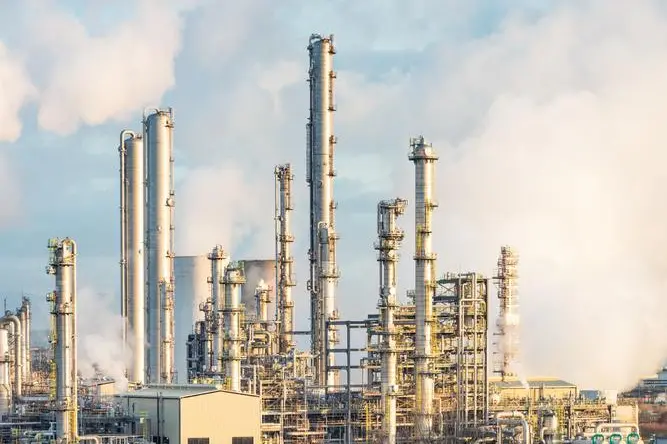PHOTO
The abundance of oil worldwide is hindering oil prices from surging to higher levels and preventing them from reaching $90 per barrel or beyond. This is due to the widespread availability of oil from nearly every corner of the globe, coupled with the ongoing race a g a i n s t time in the global transition to clean energy to phase out fossil fuels. While the US is taking the lead globally with the highest production level of 13.3 million barrels per day, OPEC+ is scaling back its production to stabilize oil prices, aiming to prevent further weakening of the barrel and maintain it within the range of $80 per barrel, if feasible, for the foreseeable future. It appears that OPEC+ will uphold its production cuts of over five million barrels.
New producers are aggressively entering the markets, surpassing the production levels of countries like Kuwait, Iran, and Iraq, examples being Brazil and Canada. They are flooding the US markets with their oil, which leaves OPEC+ to compete for market share in other regions, notably missing out on the largest oil consumers worldwide, which consume over 20 million barrels per day. Consequently, nearby countries with smaller production volumes, such as Canada, Brazil, and Venezuela, with less than one million barrels per day, are gaining traction. They are capitalizing on OPEC+’s decision to sacrifice volumes for oil stability.
The non-OPEC+ members are exploiting this situation to consume OPEC+’s market share. Throughout the remainder of the year, the oil market is expected to encounter challenges in retaining its market share. If not, non-OPEC members may aggressively expand their share, potentially compelling the oil organization to implement additional production cuts.
Otherwise, the market risks descending into further chaos, leading to a possible weakening of the barrel price, a scenario that appears increasingly probable On the flip side, the question arises – how much longer will OPEC+ endure the burden of sacrifice while new producers encroach on its market share? OPEC+ is witnessing the erosion of its long-term investments in fossil fuels as it maintains idle capacity without yielding any returns. This presents a new challenge for OPEC+ to confront, i.e., reclaiming its lost volume and market share amidst potential price weakening, price wars, or market share loss. Additionally, there is the looming risk of lost investments incurred from idling six million barrels of production capacity.
Arab Times | © Copyright 2024, All Rights Reserved Provided by SyndiGate Media Inc. (Syndigate.info).





















